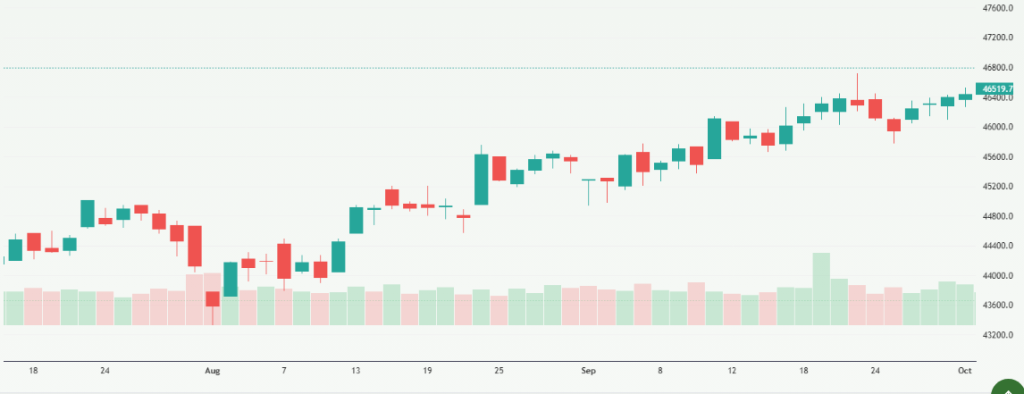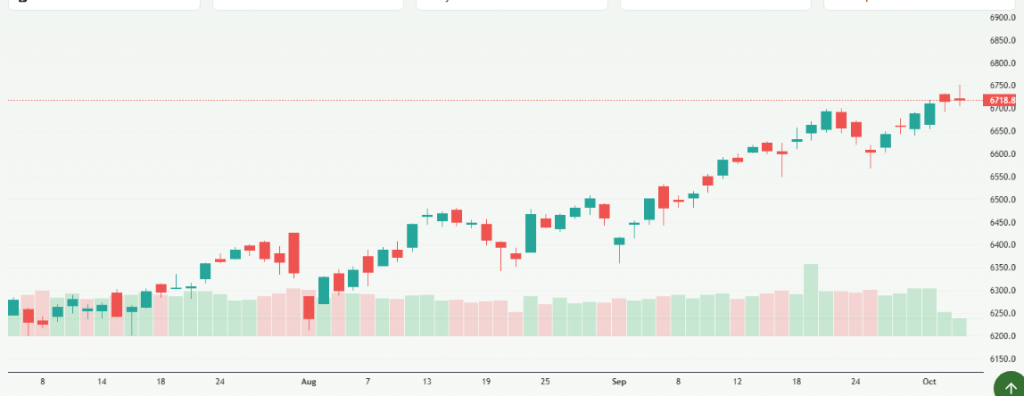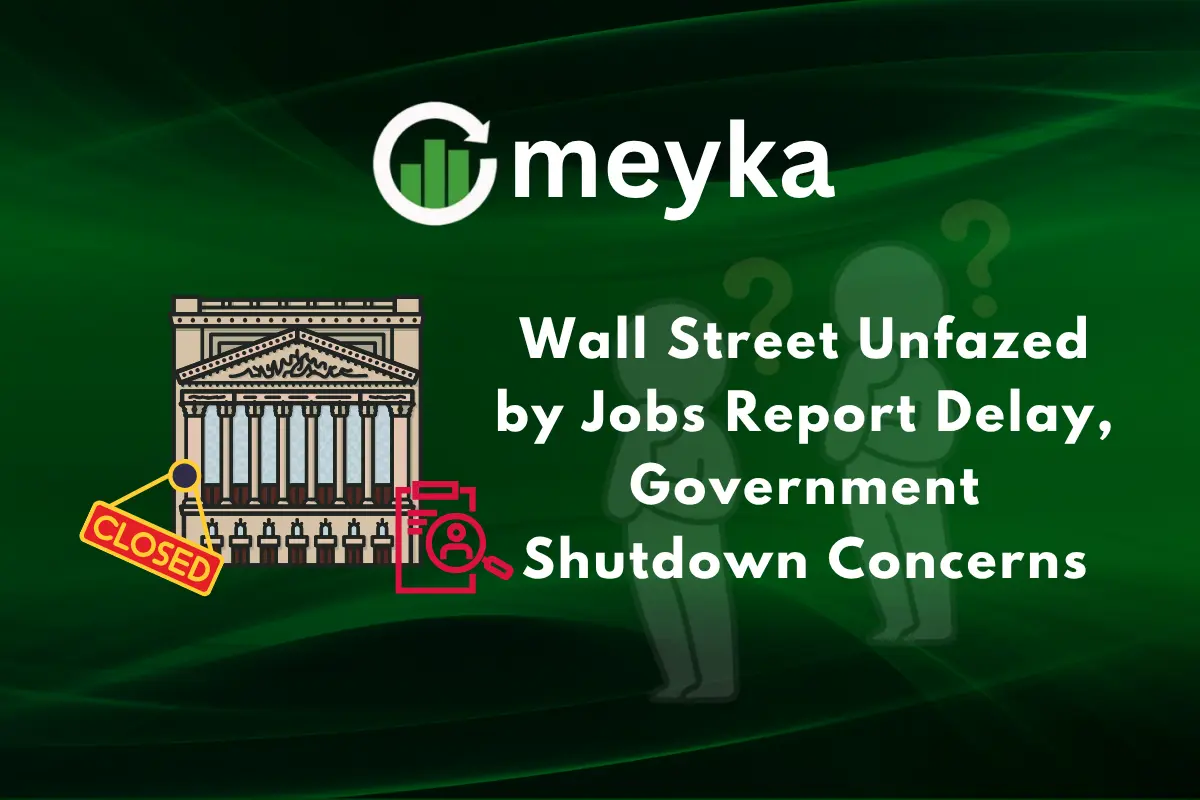Wall Street Unfazed by Jobs Report Delay, Government Shutdown Concerns
On October 1, 2025, the U.S. government entered a partial shutdown. As a result, the highly anticipated September jobs report was delayed indefinitely. We know this report is one of the most important gauges of the economy. It affects how investors read the job market and how the Federal Reserve sets interest rates.
Yet, Wall Street seems largely unbothered. Stocks keep climbing, bond markets stay calm, and traders act as if the delay is just a blip. Many analysts say the market’s trust lies in the broader strength of the economy, not in one report. Meanwhile, worries about a prolonged shutdown loom, but so far haven’t rattled investor confidence deeply.
Let’s explore why the markets are holding steady, what risks still lurk, and how investors can stay alert during this tense period.
The Jobs Report Delay: What Happened?
The Labor Department did not publish the scheduled September jobs report after federal funding lapsed. The shutdown began on October 1, 2025, and many agencies went dark or reduced operations. The Bureau of Labor Statistics said it could not release some routine reports while key staff and systems were affected. The missing jobs print removes a major data point that markets and policymakers normally use to read the labor market.
Analysts noted the delay is not without precedent. Past shutdowns have pushed back employment releases until funding was restored. Still, the delay leaves the Federal Reserve with less current official data at a time when rate decisions are sensitive to labor trends. Private surveys and payroll trackers are now in the spotlight to fill the gap.
Market Reaction: Calm Amid Uncertainty

Equity markets largely shrugged. The S&P 500 and Dow hit record levels in early October even as the jobs report sat unpublished. Technology stocks led gains, while some cyclical names lagged. Traders treated the missing report as noise rather than a trigger for a major sell-off.

Bond markets moved more than stocks, but not in panic mode. Yields fell modestly as some private data hinted at slower hiring. The move in Treasury yields reflected caution about growth and rising hopes for easier monetary policy down the road. The dollar softened on lower yields. Overall, market moves reflected adjustment, not alarm.
Why Wall Street Isn’t Panicking?
Markets have grown used to political disruptions. Traders often price in predictable Washington drama. The current shutdown is seen as a short-term blunt shock rather than a structural threat to the economy. Many investors point to steady corporate profits and resilient consumer spending. These fundamentals offer support while data gaps persist.
Another reason is liquidity and positioning. Big funds remain positive equities after a strong run. Low realized volatility in recent months left few forced sellers. This reduces the chance of a cascade from a single missing report. In addition, traders can use private sources. Firms now rely on payroll processors, ADP-type readings, and job posting indexes. Some portfolio teams even run an AI stock research analysis tool to parse alternative hiring signals quickly.
Government Shutdown Fears: Limited Market Impact
A prolonged shutdown would cut growth and slow some business flows. But history shows shutdowns usually shave only modest amounts off quarterly GDP while resolving relatively fast once a deal appears possible. Markets price risk in real time, and much of the shutdown risk was already baked into prices before funding lapsed. That muted the immediate impact when the report was delayed.
Still, risks are real. If the shutdown lasts weeks, missing data could cloud Fed decision-making. The central bank relies on monthly government releases for labor and inflation. Without them, officials would lean more on private indicators and business surveys. That could raise uncertainty about the timing and size of future rate moves. Analysts warn that a longer disruption would raise volatility and could test investor patience.
Broader Implications for Investors
The immediate lesson is to track more than headline data. With official numbers delayed, markets will follow private payroll surveys, corporate hiring calls, and weekly jobless claims. Active managers will watch earnings calls closely for hiring and wage language. Index funds and passive investors should expect bouts of noise. Portfolio diversification and cash buffers can temper short swings.
Monetary policy is the other big implication. A delayed or weak jobs print could nudge the Fed toward patience. Markets already price some odds of easier policy later in the year, a view reinforced by private data suggesting softer hiring in September. Investors should watch Fed speakers and upcoming inflation prints. Those releases will matter more than the political drama
For traders, the gap creates opportunity and risk. Less official data raises the value of nimble research and timely alternative signals. Retail investors should avoid reactionary trades on headlines. Professional desks will favor quality names and sectors with clear earnings growth. Hedging strategies and step-by-step rebalancing can reduce the chance of poor timing.
Final Words
The delayed September jobs report and the government shutdown that began on October 1, 2025, have tested market nerves. So far, markets have chosen to look past the gap. Equity indices held firm and bond yields adjusted modestly as traders leaned on private data.
Still, the situation remains fluid. A protracted shutdown could raise volatility and complicate Fed choices. Investors should follow private labor trackers, Fed communications, and corporate earnings for clearer signs of trend changes. Short-term noise may persist, but the next official data and political moves will set the tone for Q4.
Disclaimer: The above information is based on current market data, which is subject to change, and does not constitute financial advice. Always do your research.






